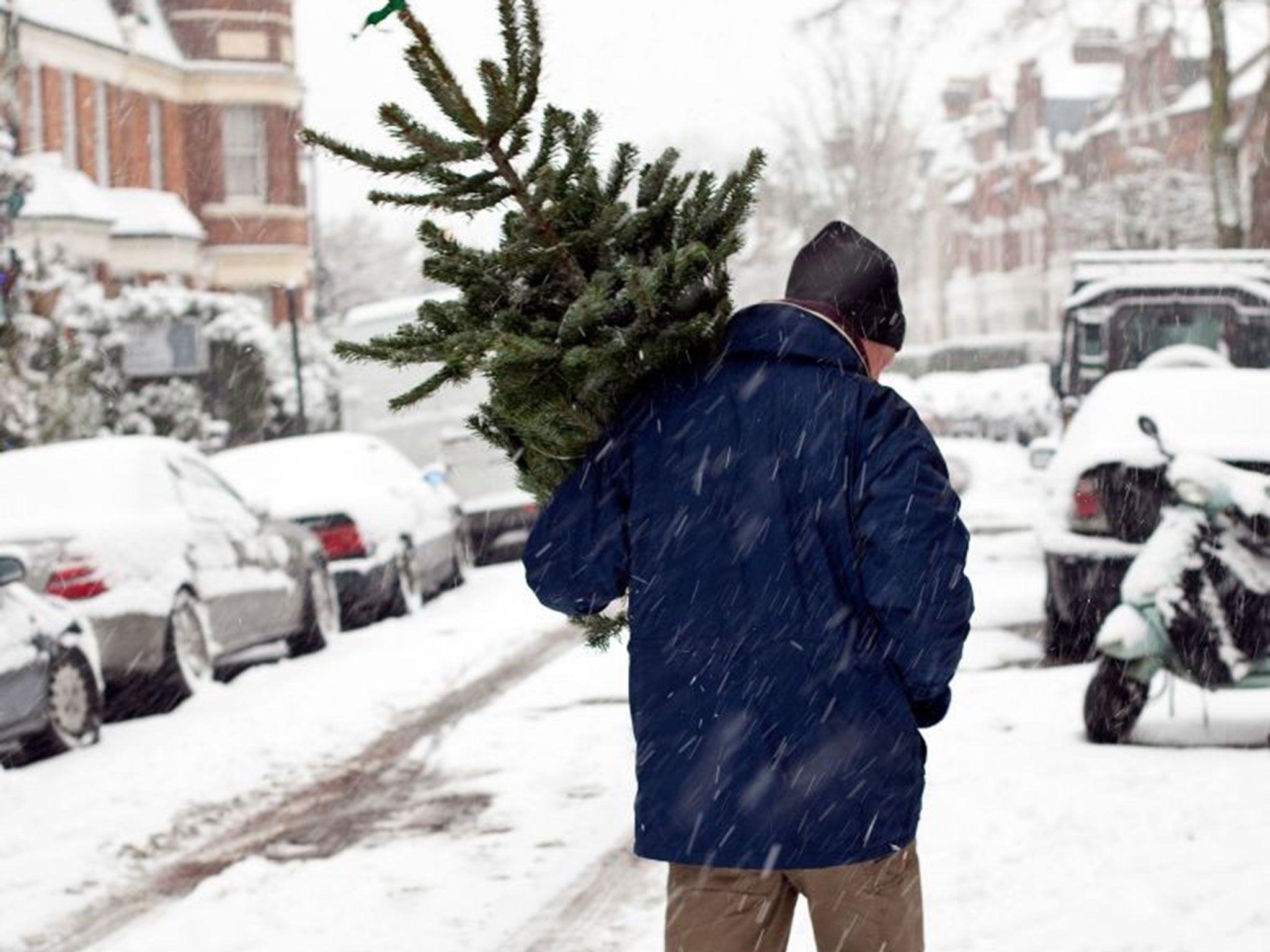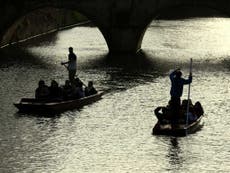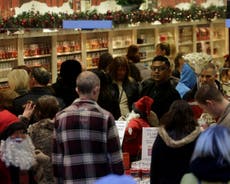Christmas Day may be the warmest on record - meaning memories of snow underfoot are retreating fast
In many counties, daffodils are in full bloom. The average air temperature over Santa’s reputed home, the Arctic, climbed 2.3 degrees Fahrenheit above average for the year ending in September, a record since observations began

The best 24 December I ever had was 20 years ago when I went hiking through the snow on the Pennines. The snow really did crunch underfoot; it really was “deep and crisp and even”. There was a continuum between my experience and the images on the Christmas cards propped on the mantelpiece of the cottage we rented, and when – as I returned in the evening – another fall of snow began, I felt the glow of rightness that comes from having your glass topped up at a good Christmas party.
This year I write this while smoking a cigar at the bottom of my garden. I am wearing a jacket, but with only a shirt (no jumper) underneath. Around me are newspaper cuttings speaking of November 2015 having been the warmest on record, while the first half of this month has been the mildest since 1960 for much of Britain. In many counties, daffodils are in full bloom. The average air temperature over Santa’s reputed home, the Arctic, climbed 2.3 degrees Fahrenheit above average for the year ending in September, a record since observations began in 1900. An ice rink in Lincoln had to close last Sunday when it started melting, and skaters heading for the rink at the Tower of London, which also closed midweek, are advised to wear waterproofs. Coral is offering 2-1 on his Christmas Day being the warmest on record.
I am reminded of a book I had as a child about how Christmas is celebrated around the world. When I read that Australians had Christmas on the beach, I felt sorry for them: in effect, they did not have Christmas, snow – or the prospect of it – being so integral to it. In the absence of snow (and I admit, the chilly VIP only rarely turns up to the party given in his honour) Christmas demanded some other form of bad weather, and if it did turn out mild, at least I could read literary descriptions of bad weather knowing they were not far removed from reality.
I have always enjoyed reading about bad weather, in which I include heavy rain. Nabokov is a rain specialist. He sees more in a puddle than most writers do in a typhoon. In The Real Life of Sebastian Knight, the eponymous main character attends Cambridge University: “The slush of streets gleaming wet in the misty darkness … the porridge [at Trinity Hall] as grey and dull as the sky above Great Court.” As for fog and snow, Dickens is out on his own, and he lays on plenty of both in A Christmas Carol. Dickens created the modern Christmas (when he died, a London flower girl reputedly asked if this meant Father Christmas had also died), largely by conjuring it out of foul weather, to which he was attached in all his works.
Elmore Leonard once stipulated that you should never begin a book with weather, about which he was wrong. Had he never read Bleak House? There, Dickens speaks of the fog “wreathing” itself around things. In London Fog: The Biography, Christine L Corton writes that the term “encourages the reader to think of a funeral wreath”, which brings us to guilt….
Dickens had no need to feel guilty about making toxic London fog, or the equally dangerous snow, seem beautiful, since his highly meteorological Christmas books had a social reforming message. But I do feel guilty about indulging my nostalgia for winter cold. The undoubted cause of the trouble – global warming – is so catastrophic that I ought to be campaigning for renewables rather than savouring the pretty snow scenes in Bridge of Spies. When I consider that I like cold partly because it brings into play its near homophone, coal – which I burn in my fireplace for aesthetic effect – I feel even guiltier.
Coal is the great villain, but it is Christmassy. I know a man in Suffolk who sells coal and logs. This is his busy time of year, and he celebrates by wearing a filthy Santa hat. And I’m afraid the Polar Express could never have been an electric train, however environmentally sound that might have been. In the week in which the last deep-level coal mine in Britain closed, I wished Jeremy Corbyn would revisit his idea of reopening some British mines (their coal to be burned with carbon-capture technology, of course)… in which sentiment there is a territorial element. I associate coal with the North, and I am from the North.
Cold also comes from the north, and this may partly explain my feeling for it. In The Idea of North, Peter Davidson describes how writers including Orwell and Auden developed a “mythology of the North” in the 1930s, focusing on its social troubles, but also evoking its characteristic rotten weather. Christopher Isherwood wrote of Auden: “He never understood how anybody could long for the sun, the blue sky, the palm trees of the south.”
There was a notion of manliness behind this mythology, and I like to give myself manly chores at Christmas: scraping the ice off the drive, bringing in the coal … and I’d like to do that thing where you have to put chains on your car tyres when driving through snowbound country. One job I used to enjoy was fetching the children’s sled down from the attic. My sons are now young men, but I’m sure they’d be up for tobogganing if the weather obliged. So would I, come to that, but the sled seems to disappear further into the recesses of the attic every year. It would be good if we could avoid the fate of Charles Foster Kane, in Citizen Kane, for whom his childhood sled represents an age of innocence and happiness, never to be regained.
Andrew Martin’s latest novel is The Yellow Diamond (Faber)







Join our commenting forum
Join thought-provoking conversations, follow other Independent readers and see their replies